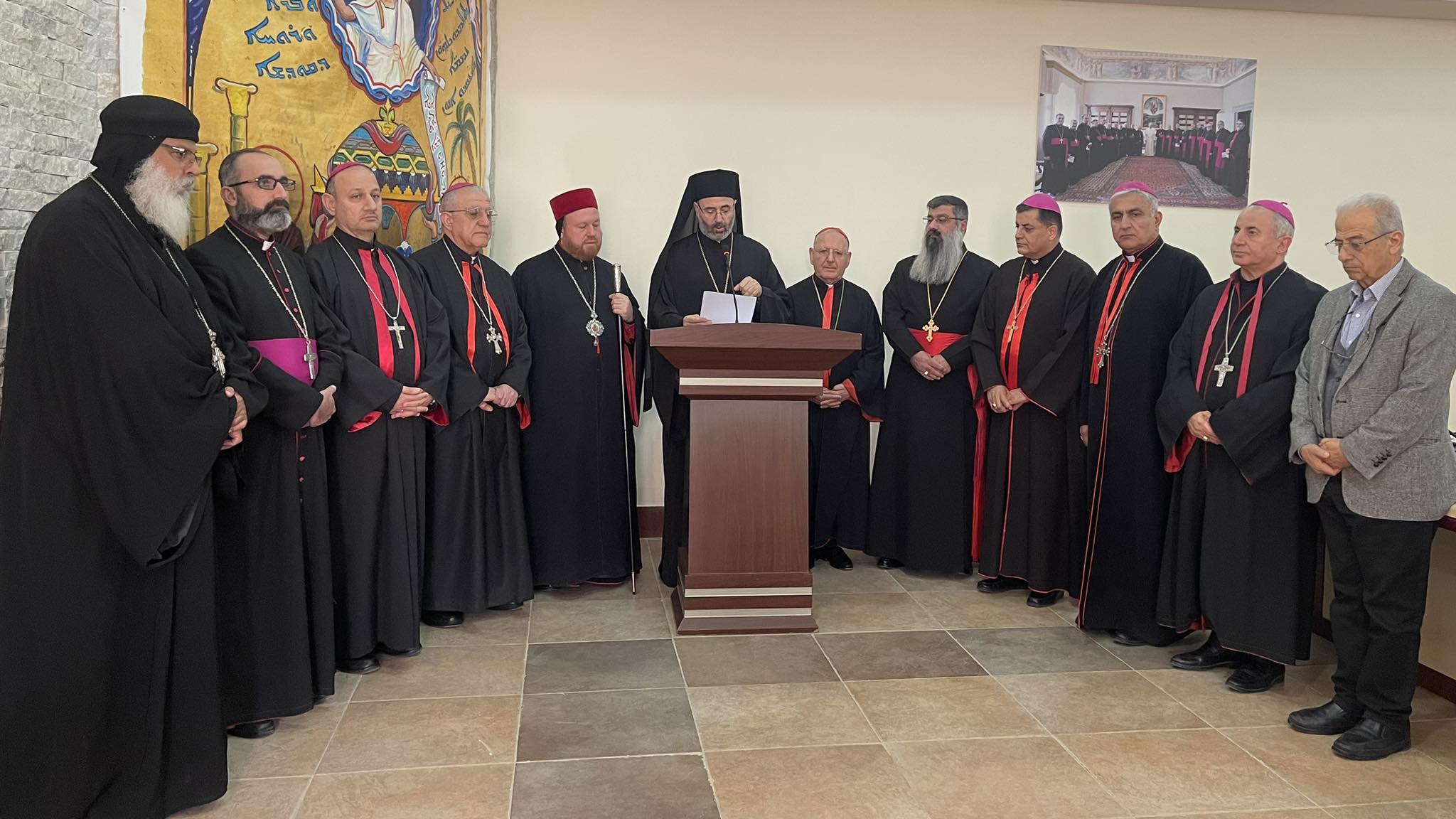Iraq, Christian leaders: the blood of Gaza (and Qaraqosh) 'cancels' Christmas celebrations
At the invitation of the Chaldean Patriarch, a meeting of Iraqi Church leaders was held yesterday in Erbil. Condemnation of the 'devastating war' between Israel and Hamas, criticism of the withdrawal of the presidential decree, and a call for justice for the victims of the wedding incident. Card. Sako emphasised the "three obstacles" in the path of Christians that threaten their presence in the country.
Erbil (AsiaNews) - Condemnation of the "devastating war" in the Holy Land, criticism for the withdrawal of the presidential decree in the long-standing affair involving the Chaldean patriarch and deep "pain" for the tragedy that struck the Christian community in Qaraqosh and which , to date, sees those responsible unpunished.
These are the main points of the final statement released yesterday, at the conclusion of the meeting of the heads of the Churches in Iraq held at the priestly monastery of Ankawa, in Erbil, the capital of Iraqi Kurdistan, at the invitation of Card. Louis Raphael Sako.
“We announce the cancellation of Christmas and New Year celebrations” read the note from the Christian leaders, with the services “limited to prayers and ecclesial rites” as a sign of respect for the victims in Qaraqosh and in the Holy Land. The "traditional receptions" of political and religious authorities (including Muslims) with the related "exchange of greetings" have also been cancelled.
He focused on current events, on the war between Israel and Hamas which threatens to overwhelm the entire Middle Eastern region, as well as the tragedy that struck the Christian community in September with the incident at the wedding party, the meeting between the leaders and of the Churches.
The meeting began "with a minute of silence" for the victims of the "holocaust" of Qaraqosh and of the bloody conflict between Israel and Palestine and, during which the leaders reiterated that "Christians are not a minority in their homeland" and the “roots” are “deep” in Iraq. Before and after Islam, the note explains, Christians "had a role rooted in the history" of Mesopotamia, since the "first civilisations".
They are "peaceful" by their "nature and faith", they are not inclined to "violence and revenge", but "despite this they have been subjected to pressure, attacks and attempts to take over their homes and properties in subtle ways". All this has pushed "those who have the means to emigrate, to preserve their lives and the future of their children", which is why it is time for the State to undertake "serious actions" to "preserve" their rights, guarantee them justice and " return the usurped properties".
This last point is linked to the story of the Chaldean patriarch who,
In mid-July, Card Sako moved temporarily the patriarchal seat from the Iraqi capital to Erbil, in Iraqi Kurdistan, after Iraqi President Abdul Latif Rashid revoked the decree recognising his role and authority.
The surprising decision goes against a centuries-old tradition upholding the authority of the highest official in Iraq’s Catholic Church, who is also responsible for Church assets.
This is the crux of the matter, namely control over assets targeted by a self-styled Christian leader, “Rayan the Chaldean”, and pro-Iranian militias who back him (including Shias, Christians, Sunnis, etc.), who threaten the country’s peace and coexistence.
Hence the request, in the Christian leaders' statement, to restore the thousand-year-old tradition because "these decrees are important" as they "recognize the head of each Church" and establish "its full powers".
In reference to the tragedy at the Christian wedding in Qaraqosh, the heads of the Churches speak of "pain and shock" still present due to the death "of 133 innocent people" and numerous injuries.
“We ask the Iraqi government - says the statement - to conduct a serious investigation, to find out who caused the accident and make them accountable to justice”. The reference is certainly not a coincidence, given that after two months (it was 26 September) silence has fallen on the massacre and there are still no certain elements or suspects.
Furthermore the Christian leaders address Iraqi officials asking them for "wisdom and courage" to "fight corruption, put an end to sectarian quotas, limit weapons to legitimate forces recognized by the Constitution, strengthen the army and police" with a view to of “stability and progress”.
At the opening of the meeting, Card. Sako addressed those present by highlighting the "three obstacles" to be overcome for a country and a society in which Christians can truly live: firstly "overcoming fanaticism-extremism" by rejecting what "hinders meeting and honest dialogue ”; "loyalty towards God, Christ and our country" that "we still love, despite the wounds" with the hope of "living in peace, freedom, dignity"; third and last, "vigilance and attention" in identifying the "multiple pressures" to which Iraqis and Christians in particular are subjected, reminding all Christian confessions and denominations present that "it is important to work as one team in this difficult moment ”.
17/05/2021 10:29








.png)










